** Spoilers for Persona 4 Golden **
My journey in Persona 4 Golden has finally reached its end, with tears and laughter included after killing the last boss – the very, very last boss from the true ending. In good jrpg fashion, the game hinted at a possible outcome while there were still many events waiting around the corner. I can tell that we were reaching for the end many gameplay hours ago. First when we thought the copycat murderer was the culprit, then when we were pretty much certain that Namatame was responsible, and yet there was another one pulling the strings, until finally, the ultimate almighty entity behind the fog enveloping mankind’s wishes revealed itself in a most inconspicuous form. I’ve seen enough examples of how immersive the storytelling coming from these developers can be, and they definitely delivered a good thriller in the Persona universe and still gave us enough reasons to smile despite the trying times and uncertainty looming over Inaba.
Since I’ve played Persona 3 Reload quite recently it was hard to avoid comparing both games. I don’t mean it in detail because comparing a remake full of features that pamper our brains to infinity would be silly. Persona 4 Golden is a product of its time in comparison, and much of those quality of life features, even the graphics, aren’t to be compared to a game released this year. But the foggy atmosphere is reminiscent of that green fog from P3 that I won’t forget so soon and the people’s minds, disconnected from each other and waiting – in the case of Persona 4 – wishing – for the end of days and the forgetfulness it entails.
These big life questions are common elements between the games and the gods are thrown into the mix to give humanity a taste of their wishes, even the gods themselves as a creation of debilitated minds and hearts sowing lies, deceit and masks that cover their true selves. It’s as if they linger there in the pool of life, waiting to answer collective prayers without any effort at moralising the individuals. Their wishes are the god’s wishes and it rests upon us, the player, to enlighten their hearts, to treasure the precious life we have together and to show them that the truth can be pursued beyond the lies spread through a TV screen or through our deepest desires born out of insecurity and loneliness. If not, Inaba and perhaps the world, would drown in eternal fog and humans would become shadows, their memories erased forever and their ignorance a call for eternal bliss.

Our cast of characters goes through the same process, at first avoiding the truth about their deepest feelings, their insecurities and hidden desires, to then facing their true selves, with both good and bad, and receiving their Personas into their hearts. At the end of each of their dungeons they have some sort of deep realisation of their true nature and it was Naoto’s dungeon I was about to start when I finished my previous text about Persona 4. I already suspected that Naoto didn’t identify as a woman, but androgyny in videogames is real so I didn’t give it much thought. It was when she was facing her other self, the other she was fighting against, that she revealed that she was in fact a woman living as a man, which left her friends in disbelief.
I already mentioned how Persona 4 treats themes like sexual orientation in a previous post, but this thing with Naoto was strange. She wanted to be a detective when she was very young, but the profession was exclusively male, and then there was her young age which didn’t help getting the recognition for the reasoning skills that she so well deserved. When she was a child, being a girl detective was a cute curiosity, but when she grew up, the idea of a young woman being a detective must have brought some sexist drama she didn’t want to deal with, so she passed as a young man and focused on the investigation of the Inaba murders without worrying about how others perceived her gender and sex. Oh, the dream! How much I wished to have been born a man when I was younger (when I was younger, being born a man was the same as being born male). I would be so free, I would be an entirely different person, much more sociable for sure. I don’t know if I would be less afraid of absolutely everything, but I would definitely feel more comfortable around other men, so I understand Naoto very well.

The strange part came a bit after, when her other self said “how could you become an ideal man when you were never male to begin with?” and then after Naoto faced herself she said “but though I will one day change from a child to an adult, I will never change from a woman to a man…” and right after “what I should yearn for… No, what I must strive for isn’t to become a man. It’s to accept myself for what I really am.” Naoto’s experience was very much like my own but the ideas didn’t frame the possibility of actually becoming a man if she so wanted, because that would touch the very issues Atlus has been struggling with. I don’t mean it in a negative way; it was very mild considering what I’ve seen before. I enjoyed the scene with Naoto and the way everyone reacted was very endearing. Kanji was the first one to accept her. Since then all interactions between them were very sweet.
After that I got my romantic scene with Chie and I have to confess that Marie was also my girlfriend. I checked a guide and both relationships didn’t collide during Valentine’s Day. I then went for the romance option with both but while I pursued the relationship with Marie for the extra content, I romanced Chie because she is my favourite character. I loved the interactions between her and Yosuke during Culture Festival Day and the crossdressing event. From there on, I used the creepy highschool girl outfit in every dungeon. Yosuke got used to his new mini skirt and his persona was amazing during the last dungeon because many shadows were weak to wind.
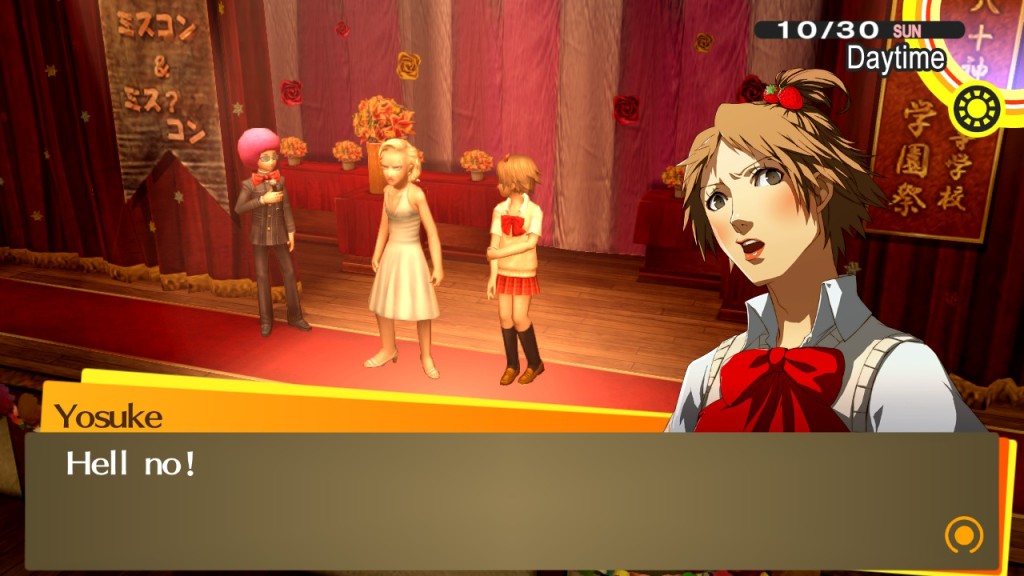
After Namatame was arrested I thought the game was reaching its conclusion. When he was at the Riverside a few months ago moaning nonsense to himself it was clear that he was in great suffering. After Nanako’s kidnapping, allegedly to save her, we managed to clear the dungeon and defeat his shadow. He was under surveillance at the hospital and Nanako was very sick. She died from her mysterious health situation. The doctors couldn’t figure out what she had gotten. It was as if the contact with the TV world had infected her with the same evil as the first victims. I felt that I was approaching the end of the game so I checked a guide to see what the path to the true ending was. The true ending isn’t something you accidentally fall into. Very specific and non-intuitive dialogue choices are required to progress and get to the real culprit. If I could or couldn’t have guessed who the real culprit was without any help will forever remain a mystery. At first it even seemed a bit ridiculous and I’m almost sure he wouldn’t be my first choice.
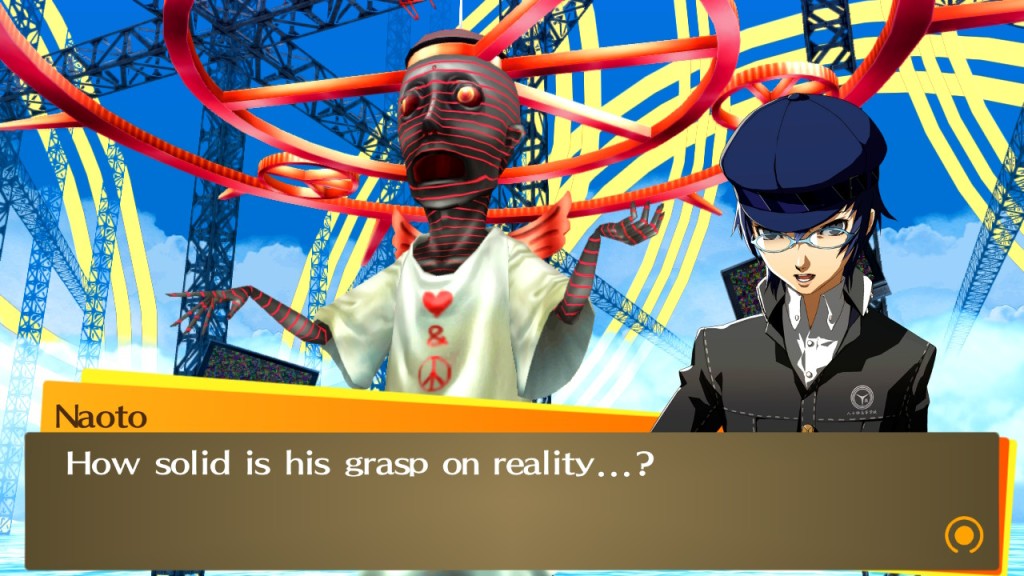
After I finished the game, I reloaded the save to see the bad ending. It was the most anti-climatic thing I’ve ever seen. Nanako remained dead, so imagine how it feels to fall into that ending right after watching her die in the hospital without the knowledge that she could come back to life. When I made my progress I was still very shocked by her death and didn’t have any idea that she could come back. Since her health situation was a question mark, the powers at hand and the connection between our group may have reawakened her spark. In practical terms, we had to avoid revenge and pick the right dialogue choices. The rest of the bad ending didn’t feel like the type of ending we are used to in japanese videogames – those endings that drag, and drag, and drag – with an epilogue and many sentimental words, and bright colours, tears and laughing and banter. That was the true ending with the golden content from Marie. Also, Kanji’s new hairstyle.
But the bad ending didn’t lift the fog of illusion that Ameno-Sagiri mentioned during our fight. We said goodbye to our friends and left them enveloped in the fog that would eventually consume them, and with it the loss of memory, blissful ignorance and disconnect. After the point where we got the culprit and confronted him in the dungeon the game got very scripted, with no more room for further social link activity. I managed to max out every classmates’ social link except for Rise, unfortunately. I spent too much time at the start without knowing what to do and spent precious time with activities that weren’t necessary. I wonder if we can max out all social links in one playthrough. Apart from my classmates I managed to max the nurse Sayoko, Hisano which I loved, Marie for the ending, my group except for Rise and the Fox, the links that unlock with the story and not much else.

During the adorable ski trip some mysterious forces attracted our group into a shelter were we were summoned by a special character to fight inside another dungeon – the Hollow Forest – with the objective to save Marie. This dungeon was a bit hellish. We were stripped away from every single item we got and every time we started a fight our SP was halved. During the exploration we got access to treasure chests that allowed us to populate our inventory with useful items like the rings. These were useful to replenish a number of SP for every turn in battle. Besides the SP, some enemies were also a pain to deal with. We could avoid some shadows if they showed up on the map, but in certain levels we had to engage in battles whether we wanted it or not because opening a door automatically initiated a fight. Furthermore, the enemies used plenty of status effects against us with almost perfect success rate. Because of the constant ailments, exploring the dungeons was paramount to get armour to protect the party against the damage type they were weak to and also items to break enemy resistances. By the end of the dungeon we were well equipped to defeat whatever was holding its grasp on Marie.
The existence of the Hollow Forest was related to the memory loss Marie had been struggling with since the start of the game. When she got her memories back she opted to hide herself inside the forest, shocked with the realisation of her nature as the emissary carrying the collective wishes of humanity to the Sagiri. With the fog raging inside her, and after some pressure from the group, she fell asleep, calming her mind, and setting free the fog to form Kusumi-no-Okami, an entity which was a part of Marie and one of the many aspects of her existence.
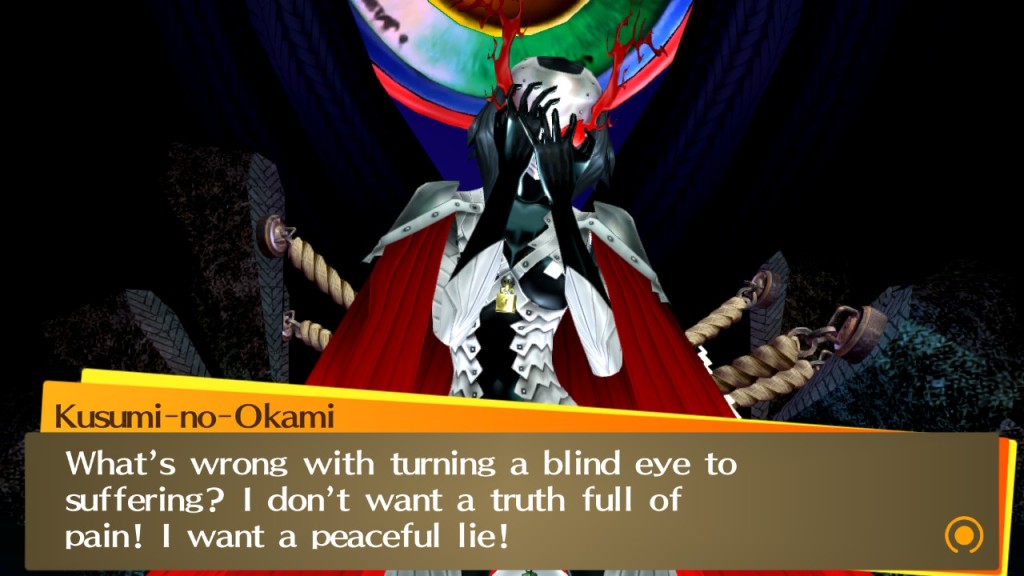
After defeating Kusumi-no-Okami and giving Marie her well deserved freedom from the boundless wishes that almost destroyed her, our group was set on discovering the real truth behind it all. After some very striking revelations we stood before Izanami, the one god that created the Sagiri and separated itself from Marie, giving her the comb that she treasured as the only connection to her existence and which was in fact a curse and a symbol of separation. The granting of those wishes further entangled the web of lies where people wanted to live, even convincing a god that illusions and expectations formed into fabricated realities were everything that humans could wish for. The images shown on the TV were the result of those expectations, and by activating the object of desire the god granted the perfect picture. Although when expectation met the desired outcome, something else changed inside the hearts of people and the very realisation of mankind’s shortcomings came to light opening gaps for more wishes and avenues for more fog. Think about it as using social networks to access only the type of content you agree with, feeding the algorithm with your conscious and unconscious will with slight variations of the same thing, forming the content inside a primordial sea of misconstrued information, deleting your perspective and ultimately your critical thinking and reasoning with time.

Even the gods don’t believe in us, was what I thought when Izanami said “you have already exceeded what I thought humanity to be capable of.” Just because we were going for the truth as the ultimate wish worth fighting for, having to convince and even force a god to change their opinion was a bit absurd but at the same time it was interesting from a theological perspective. At least I felt that we had some agency in the books. And then when Izanami-no-Okami said “well done…!” a tear started rolling down my face.
Oh my, what a game! I’m tired and depleted as I think I’ll always be after playing a Persona game. It is, however, a good kind of exhaustion, of having played a long game with a rich and meaningful story that agitates the soul. After lifting the fog from both this world and the TV world, it was time to go home. We said goodbye to our dear friends and took the train. Some time later we visited a bright Inaba full of life, warmth and hope. Everyone changed and grew up a bit, especially our dear Kanji! As for Marie and the others you’ll have to see for yourself.

If you’re still here, thanks for reading this! I enjoyed my time with Persona 4 Golden even though it wasn’t entirely possible to play it without interruptions. I plan to check the extra content from the Golden edition and see the anime cutscenes again. I enjoyed the concept drawings for the characters and their personas, the cover artworks, and the Jungian psychology lessons from Mr. Edogawa. I still have a lot to explore in the game and social links to complete, so I hope to be able to do another run sometime soon.


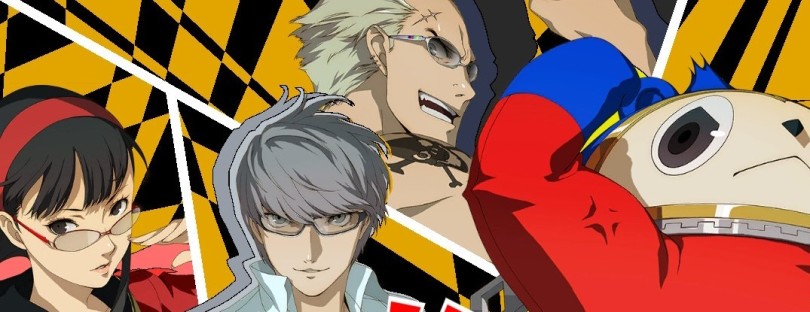
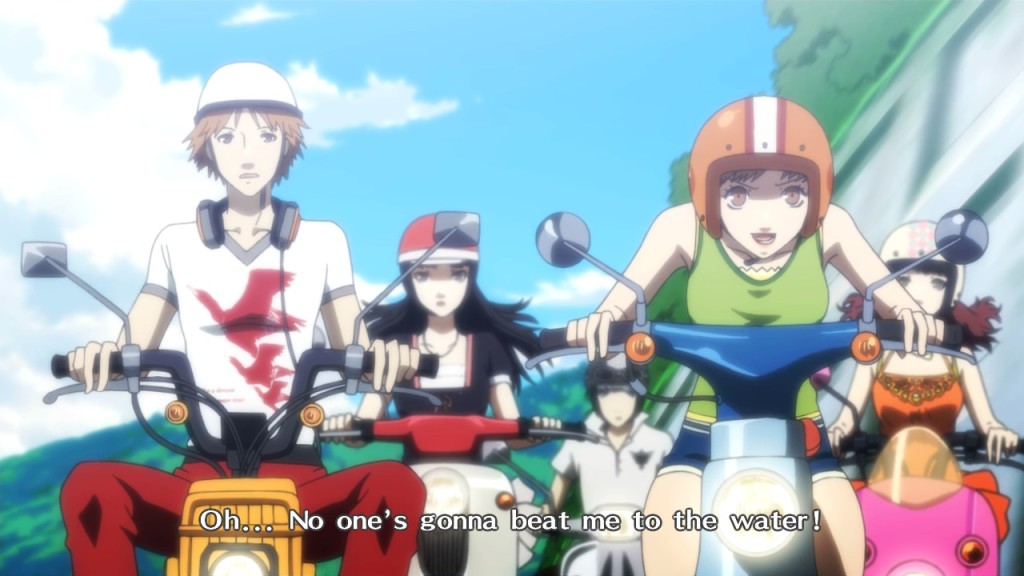
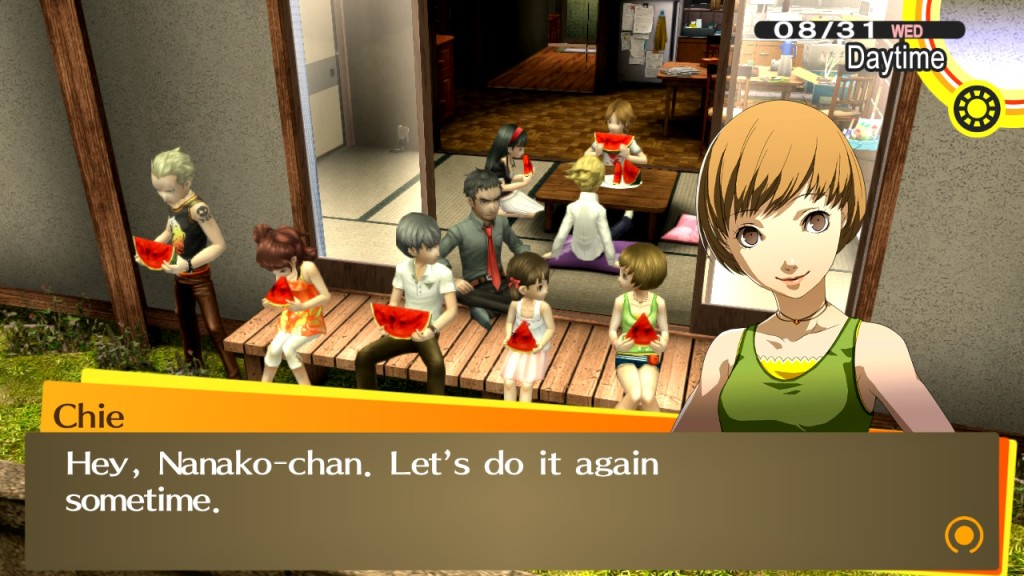
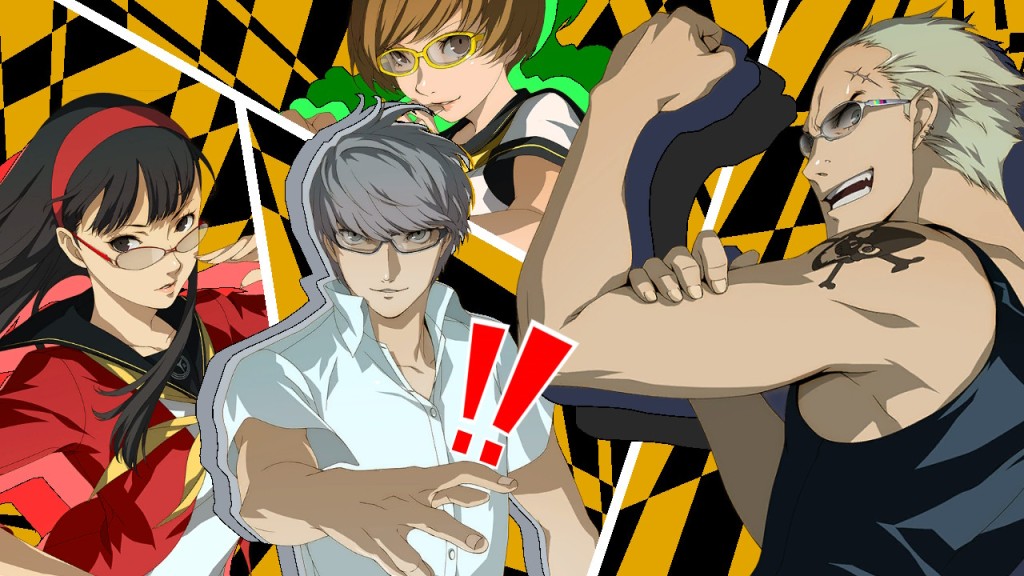
You must be logged in to post a comment.